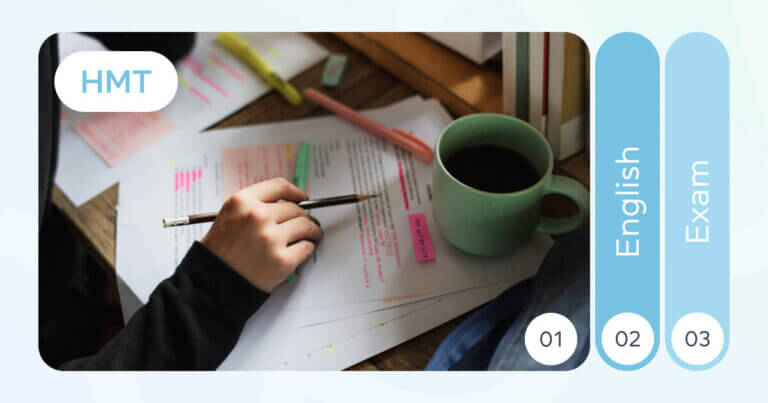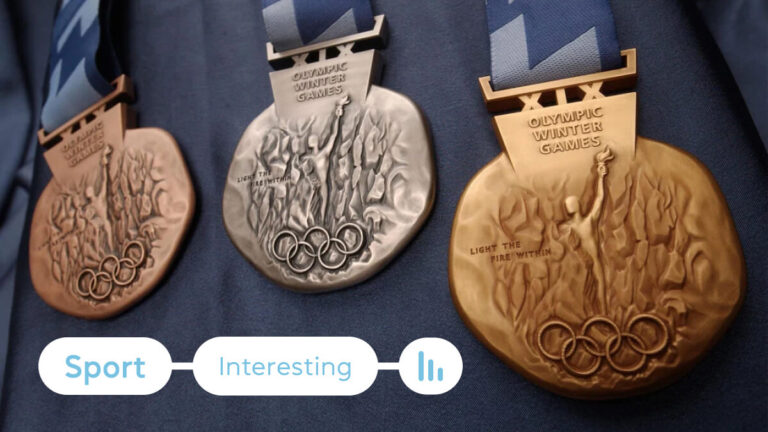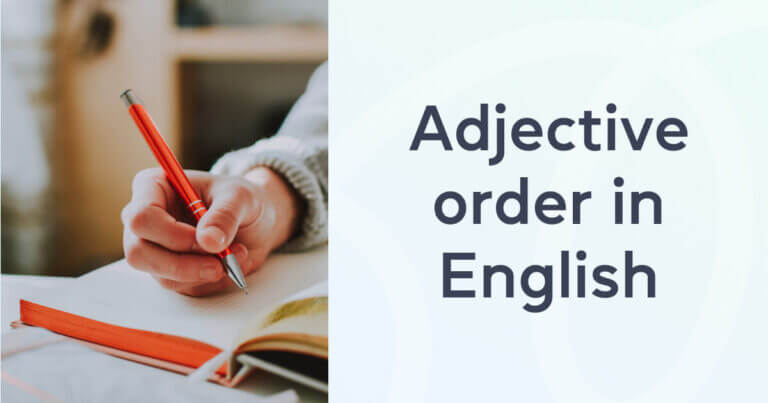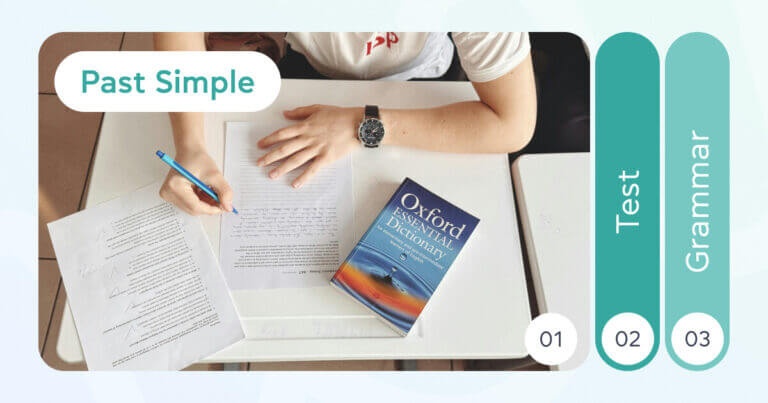✔️ Если вы хотите сдать экзамен IELTS на высокий балл, важно понимать как можно больше английской лексики и научиться выражать свои мысли на более высоком уровне. Для этого нужно учить новые слова и выражения в контексте, то есть на примерах, а еще лучше — создавать собственные предложения, которые связаны с вашей жизнью или ситуациями, в которых вы смоете их употреблять. Это самый действенный способ их запомнить.
Мы подобрали для вас английские слова и синонимы общеупотребительных слов, а также лексику, которая продемонстрирует экзаменатору глубину вашего словарного запаса. Помните, что на экзамене IELTS важно не поразить экзаменатора, а правильно и уместно использовать лексику и грамматику для передачи определенного содержания. Именно это и является залогом высокого балла. Если же кандидаты вставляют в свой ответ «крутые слова» без понимания или неправильно их произносят, или пишут с ошибками, это не спасает от провала.
Чтобы потренироваться и проверить, насколько ваш словарный запас расширится, переходите к интерактивным тестам в конце статьи.
Итак, лексика продвинутого уровня, которая поможет вам лучше сдать IELTS!
Английские существительные для IELTS
1. Aberration /ˌæb·əˈreɪ·ʃən/– отклонение; помрачение ума.
- A childless woman was regarded as an aberration, almost a social outcast.
- In a moment of aberration, she agreed to go with him.
2. Alacrity /əˈlæk.rə.ti/– готовность, рвение, прыть.
- It was an interesting challenge and I responded with alacrity.
- She accepted the money with alacrity.
3. Avarice /ˈav(ə)rɪs/ — жадность, алчность.
- Avarice makes rich people want to become even richer.
- Her business empire brought her wealth beyond the dreams of avarice.
4. Candor /ˈkæn.dɚ/ – откровенность, прямота.
- You ought to treat this matter with candor.
- His candor is charming.
5. Complacency /kəmˈpleɪ.sən.si/ – самодовольство, беспечность, отсутствие бдительности.
- Doctors have warned against complacency in fighting common diseases.
- What annoys me about these girls is their complacency — they seem to have no desire to expand their horizons.
6. Confidant /ˈkɒn.fɪ.dænt/ – задушевный друг, доверенная фигура.
- He is a trusted confidant of the president.
- My brother is my closest confidant.
7. Despot /ˈdes.pɒt/ – деспот, тиран.
- She rules her family like a real despot.
8. Empathy /ˈem.pə.θi/ – участливость, способность сопереживать, эмпатия.
- She had a deep empathy with animals.
9. Enmity /ˈen.mə.ti/ – вражда, ненависть.
- He had earned their lasting enmity.
- There was no sign of enmity between the two women
10. Gluttony /ˈɡlʌt.ən.i/ – обжорство, ненасытность.
- Dieting is good insofar as it prevents gluttony.
- They treat Christmas as just another excuse for gluttony.
11. Hypocrisy /hɪˈpɒk.rɪ.si/ – лицемерие.
- He condemned the hypocrisy of those politicians who do one thing and say another.
12. Infamy /ˈɪn.fə.mi/ – позор, бесславие.
- Traitors are held in infamy.
- The president described the attack as «a day that will live in infamy».
13. Knell /nel/– похоронный звон; предзнаменование конца.
- The arrival of large supermarkets sounded the death knell of many small local shops.
14. Maverick /ˈmæv.ər.ɪk/ – идущий против течения, индивидуалист.
- He’s always been a bit of a maverick.
15. Maxim /ˈmæk·sɪm/ – изречение, афоризм.
- Treating others how I want to be treated is a variation of a maxim I learned as a child.
16. Modicum /ˈmɒd.ɪ.kəm/ – чуточка, толика.
- There’s not even a modicum of truth in her statement.
- Anyone with a modicum of common sense could have seen that the plan wouldn’t work.
17. Myriad /ˈmɪr.i.əd/– бесчисленное множество.
- They face a myriad of problems bringing up children.
18. Nadir /ˈneɪ.dɪər/– крайний упадок, максимальное снижение.
- Company losses reached their nadir in 1992.
19. Novice /ˈnɒv.ɪs/– начинающий, новичок.
- I’m a complete novice at skiing.
20. Nuance /ˈnjuː.ɑːns/– оттенок, особенность, нюанс.
- The painter has managed to capture every nuance of the woman’s expression.
21. Panacea /ˌpæn.əˈsiː.ə/– универсальное средство, лекарство от всех болезней.
- There is no single panacea for the problem of unemployment.
22. Parody /ˈpær.ə.di/ – пародия, карикатура, подобие.
- This article is a grotesque parody of the truth.
23. Penchant /ˈpɑ̃ːŋ.ʃɑ̃ːŋ/ – пристрастие, влечение.
- He has a penchant for adopting stray dogs.
24. Perusal /pəˈruː.zəl/ – подробное изучение.
- The agreement was signed after careful perusal.
25. Plethora /ˈpleθ.ər.ə/ – изобилие, избыток, огромное количество.
- The city faces a plethora of problems.
- There’s a plethora of books about the royal family.
26. Predilection /ˌpriː.dɪˈlek.ʃən/ – склонность, предпочтение.
- Ever since she was a child she has had a predilection for spicy food.
- Most readers have had a predilection to dismiss the arguments and speculations.
27. Serendipity /ˌser.ənˈdɪp.ə.ti/ – прозорливость, озарение, удача, приятная неожиданность
- We all have experienced the serendipity of relevant information arriving just when we were least expecting it.
28. Sycophant /ˈsɪk.ə.fænt/– подхалим.
- The Prime Minister is surrounded by sycophants.
29. Umbrage /ˈʌm.brɪdʒ/ – обида, оскорбление.
- She took umbrage at my remarks about her hair.
30. Zenith /ˈzen.ɪθ/– расцвет, высшая точка.
- His career reached its zenith in the 1960s.
- The summer sun was at its zenith in a cloudless sky.

Английские глаголы для IELTS
31. Abhor /əˈbɔːr/ – испытывать отвращение.
- I abhor discrimination of any kind.
32. Acquiesce /ˌæk.wiˈes/– уступить, молчаливо согласиться.
- Her parents will never acquiesce in such an unsuitable marriage.
- The bank acquiesced to an extension of the loan.
33. Appease /əˈpiːz/– умиротворять, успокаивать.
- The government tried to appease discontented workers.
34. Cajole /kəˈdʒəʊl/– льстить, умасливать.
- He really knows how to cajole people into doing what he wants.
- I managed to cajole her out of leaving too early.
35. Chide /tʃaɪd/ – журить, ворчать.
- He gently chides his students every time they misspelled a word.
36. Coerce /kəʊˈɜːs/ – принуждать.
- I was coerced into joining the gang.
37. Connive /kəˈnaɪv/– пособничать, попустительствовать, смотреть сквозь пальцы.
- The prisoners paid the guards to connive at their escape.
- They connived to break the schools rules at every opportunity.
38. Debase /dɪˈbeɪs/ – обесценивать, понижать качество.
- Some argue that money has debased football.
39. Decry /dɪˈkraɪ/ – открыто осуждать, критиковать.
- Lawyers decried the imprisonment of several journalists.
40. Deride /dɪˈraɪd/– высмеивать, издеваться.
- Quite often, his sense of superiority makes him deride her opinions.
41. Embezzle /ɪmˈbez.əl/ – совершить растрату, присвоить.
- The cashier embezzled $60,000 from the bank.
42. Embezzle /ɪmˈbez.əl/ – превозносить, восхвалять.
- She was extolled as a genius.
42. Fabricate /ˈfæb.rɪ.keɪt/ – подделывать, выдумывать, фабриковать; производить из частей.
- He was late, so he fabricated an excuse to avoid trouble.
- Their plan is to fabricate the house out of synthetic parts.
43. Forsake /fɔːˈseɪk/ – покидать, отрекаться.
- She will never forsake her vegetarian principles.
44. Inhibit /ɪnˈhɪb.ɪt/ – препятствовать, замедлять.
- An unhappy family life may inhibit children’s learning.
45. Refurbish /ˌriːˈfɜː.bɪʃ/ – ремонтировать, подновлять.
- Housing Society volunteers refurbish the homes for the elderly.
- The developers refurbished the house inside and out.
46. Repudiate /rɪˈpjuː.di.eɪt/ – отрекаться, отказываться признать.
- The West has chosen to repudiate all responsibility for these refugees.
47. Vex /veks/ – досаждать, раздражать.
- It vexed me to think of others gossiping behind my back.
ЧИТАЙТЕ ТАКЖЕ: 35 фразовых глаголов для экзамена C1 Advanced (CAE)

Английские прилагательные для IELTS
48. Amiable /ˈeɪ.mi.ə.bəl/ – любезный, приветливый, дружелюбный.
- He is an educated, amiable and decent man.
49. Arcane /ɑːˈkeɪn/– тайный, загадочный, известный только посвященным.
- This argument may seem arcane to those not closely involved in the world of finance.
50. Brazen /ˈbreɪ.zən/ – беззастенчивый, неприкрытый.
- He told me a brazen lie.
51. Brusque /bruːsk/ – грубый, бесцеремонный.
- His brusque manner hides a shy and sensitive nature.
- His secretary was a little brusque with me.
52. Callous /ˈkæl.əs/– бессердечный, черствый.
- His cruel and callous comments made me shiver.
53. Circumspect /ˈsɜː.kəm.spekt/ – осмотрительный, продуманный.
- The banks should have been more circumspect in their dealings.
54. Clandestine /klænˈdes.tɪn/ – тайный, негласный.
- He has been having a clandestine affair with his secretary for three years.
55. Coherent /kəʊˈhɪə.rənt/ – связный, согласованный, складный.
- The Government lacks a coherent economic policy.
- When she calmed down, she was more coherent (able to speak clearly and be understood ).
56. Cumulative /ˈkjuː.mjə.lə.tɪv/– накапливающийся, нарастающий.
- This drug has a cumulative effect.
57. Deferential /ˈdef.ər.əns/ – почтительный, уважительный.
- She is always extremely deferential to anyone in authority.
58. Demure /dɪˈmjʊər/– скромный, сдержанный.
- She gave him a demure smile.
59. Diligent /ˈdɪl.ɪ.dʒənt/– прилежный, усердный.
- Their lawyer was extremely diligent in preparing their case.
60. Elated /iˈleɪ.tɪd/ – ликующий, воодушевленный.
- The crowds in the square were elated by the news.
- He was elated by the birth of his son.
61. Eloquent /ˈel.ə.kwənt/ – красноречивый.
- I heard him make a very eloquent speech at that dinner.
- The photographs are an eloquent reminder of the horrors of war.
61. Erudite /ˈer.ʊ.daɪt/ – эрудированный, ученый, начитанный.
- She could turn any conversation into an erudite discussion.
62. Feral /ˈfer.əl/– дикий, звериный.
- He looked at me with a feral grin.
63. Flabbergasted /ˈflæb.ə.ɡɑː.stɪd/ – потрясенный, как громом пораженный.
- He was flabbergasted when he heard that his friend had been accused of murder.
64. Fractious /ˈfræk.ʃəs/ – капризный, раздражительный.
- Children become fractious when they are tired.
65. Furtive /ˈfɜː.tɪv/ – скрытый, сделанный украдкой.
- There was something furtive about his actions.
66. Gratuitous /ɡrəˈtʃuː.ɪ.təs/ – бесплатный, безвозмездный; беспричинный, неоправданный.
- Gratuitous promises can not be enforced at law.
- There’s too much crime and gratuitous violence on TV.
67. Haughty /ˈhɔː.ti/– заносчивый, надменный.
- He spoke in a haughty tone.
68. Impeccable /ɪmˈpek.ə.bəl/ – безупречный, безукоризненный.
- Her written English is impeccable.
69. Impertinent /ɪmˈpɜː.tɪ.nənt/ – наглый, дерзкий, бесцеремонный.
- His impertinent remarks wasted valuable time.
70. Implacable /ɪmˈplæk.ə.bəl/– непримиримый, беспощадный.
- The government faces implacable opposition on the issue of nuclear waste.
71. Impudent /ɪmˈpruː.dənt/– нахальный, дерзкий, бесстыжий.
- That impudent boy put his tongue out at me.
72. Incisive /ɪnˈsaɪ.sɪv/– проницательный.
- The error was obvious to an incisive mind like his.
73. Indolent /ˈɪn.dəl.ənt/– ленивый, медлительный, расслабленный.
- It can take an indolent teenager hours to get out of bed on a weekend morning.
74. Inept /ɪˈnept/– неуместный, неподходящий, некомпетентный.
- It would be politically inept to cut these training programmes now.
75. Innate /ɪˈneɪt/ – врожденный, данный от природы.
- Children have an innate ability to learn language.

76. Insatiable /ɪnˈseɪ.ʃə.bəl/– ненасытный, неутолимый.
- Most children have an insatiable desire for knowledge.
77. Insular /ˈɪn.sjə.lər/– островной, свойственный островам; узких взглядов, недалекий.
- A continental climate is different from an insular one.
- In many respects this was a negative, vulgar, insular, and xenophobic political culture.
78. Intrepid /ɪnˈtrep.ɪd/– неустрашимый, отважный.
- To be an astronaut, you must be an intrepid person who craves adventure and is not afraid of heights.
79. Inveterate /ɪnˈvet.ər.ət/– закоренелый, заядлый.
- I never trust anything he says – the man’s an inveterate liar.
80. Jubilant /ˈdʒuː.bəl.ənt/– ликующий.
- The fans were in a jubilant mood as they left the stadium.
81. Lithe /laɪð/– гибкий.
- He had the lithe, athletic body of a ballet dancer.
82. Lurid /ˈlʊə.rɪd/– мрачный, жуткий.
- The papers gave the lurid details of the murder.
83. Meticulous /məˈtɪk.jə.ləs/ – тщательный, дотошный, скрупулезный.
- Their room had been prepared with meticulous care.
84. Morose /məˈrəʊs/– замкнутый, угрюмый.
- Since the accident she’s been morose and moody.
85. Nominal /ˈnɒm.ɪ.nəl/– существующий только по имени, формальный, номинальный.
- The king was only the nominal head of the state.
86. Oblivious /əˈblɪv.i.əs/– забывающий, не обращающий внимания.
- Absorbed in her work, she was totally oblivious of her surroundings.
87. Obsequious /əbˈsiː.kwi.əs/– подобострастный.
- The salesman’s obsequious manner was beginning to irritate me.
88. Obtuse /əbˈtʃuːs/– бестолковый, туповатый.
- He was either normally stupid or being deliberately obtuse.
89. Quaint /kweɪnt/ – причудливый, необычный, притягательно старомодный.
- Grandma lives in a quaint old cottage.
90. Rash /ræʃ/ – поспешный, опрометчивый.
- Don’t make any rash promises that you may regret later.
- That was a rash decision.
91. Rife /raɪf/ – изобилующий, преисполненный, распространенный.
- The organization was rife with bribery and corruption.
92. Salient /ˈseɪ.li.ənt/ – бросающийся в глаза, заметный.
- The list is not detailed but tries to focus on the most salient points.
93. Staid /steɪd/– уравновешенный, трезвый, степенный.
- In an attempt to change its staid image, the newspaper has created a new section aimed at younger readers.
94. Superfluous /suːˈpɜː.flu.əs/– чрезмерный, лишний.
- The crowd was so well-behaved that the police presence was superfluous.
95. Taciturn /ˈtæs.ɪ.tɜːn/ – молчаливый, немногословный.
- The ship’s captain was a taciturn man who spoke only to give orders.
96. Truculent /ˈtrʌk.jə.lənt/– агрессивный, грубый, воинственный.
- She wondered why her son held such a truculent attitude towards his new classmates.
97. Venerable /ˈven.ər.ə.bəl/ – почтенный, освященный веками.
- This bank is a venerable financial institution.
- This view reflects a venerable tradition that goes back to Adam Smith.
98. Voracious /vəˈreɪ.ʃəs/ – ненасытный, жадный.
- Joseph was a voracious book collector.
99. Vociferous /vəˈsɪf.ər.əs/– громкий, шумный, громогласный.
- The minority population became more vociferous in its demands.
100. Wanton /ˈwɒn.tən/ – необоснованный, неоправданный; беспутный.
- He displayed a wanton disregard for the facts.
Сколько слов вы знали? А сколько запомнили? Давайте проверим правильно ли вы пишете и понимаете значение этих слов. А тут сразу три интересные активности, где вы также сможете потренироваться узнавать новые слова по их значению и правильно писать под диктовку.
Нужно сдать экзамен IELTS как можно лучше? Записывайтесь на курс подготовки в Grade!
Вас уже ждут комфортные аудитории, качественные учебники и квалифицированные преподаватели с многолетним опытом.








Комментарии
Спасибо большое. Как раз нужный были подготовлюсь и выучу когда время будет только😅
Спасибо. Завтра у меня экзамен. Сегодня все выучу и хорошенько подготовлюсь
Спасибо за ваш комментарий! После модерации мы опубликуем его на нашем сайте :)